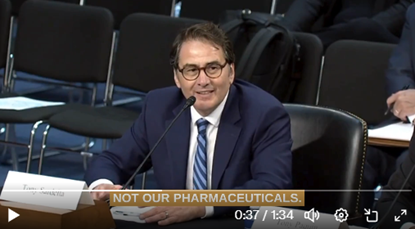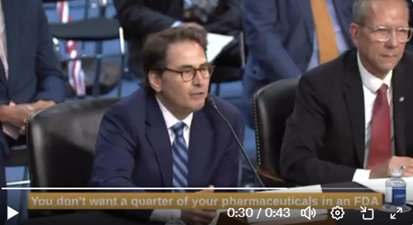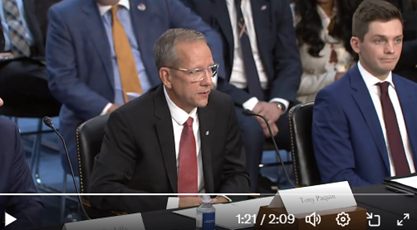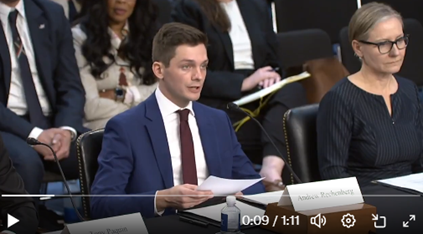IN CASE YOU MISSED IT… Chairman Rick Scott Leads Hearing on Fixing America’s Broken Drug Supply Chain; Highlights Expert Testimonies
WASHINGTON, D.C. – In case you missed it, Chairman Rick Scott led a hearing as the chairman of the U.S. Senate Special Committee on Aging: “Bad Medicine: Closing Loopholes that Kill American Patients.” This hearing continued Chairman Scott and the committee’s efforts to examine and reduce America’s severely dangerous overdependence on foreign-manufactured generic drugs and address vulnerabilities in the nation’s pharmaceutical supply chain. Chairman Scott’s experts testified on solutions to boost domestic drug production, improve supply chain transparency, and close loopholes that have been allowing unsafe medications to flood the U.S. market.
Chairman Scott welcomed expert witnesses Tony Sardella, the founder & chair of the API Innovation Center and distinguished fellow of Health Innovation at Washington University in St. Louis Olin Business School; Tony Paquin, the president & chief executive officer of iRemedy Healthcare, Inc.; and Andrew Rechenberg, an economist at the Coalition for a Prosperous America.
Watch the full hearing HERE or find key witness testimony excerpts below:
Chairman Scott began questioning ways to improve the U.S. generic drug supply chain.
Chairman Scott: “…if we took the DoD and…the VA… just take their drug buying, would there be more volume?”
Mr. Sardella: “You would transform the U.S. generic supply chain and you would also cause a force function for private markets to then also procure from U.S. manufacturers…”
Senator Moody further asks: “At this point are consumers ever informed where the main ingredients and the drugs that they are taking are manufactured?”
Mr. Sardella: “Very unlikely. There’s no transparency. This is a very interesting concept. This is an industry like any other supply chain. Any other supply chain you can look and understand where the product comes from, and where it’s sourced. Not our pharmaceuticals.”

Senator Tuberville raised questions about changes needing to be made to ensure a level playing field:
Senator Tuberville: “What changes do you think we need to make to have Oxford and other companies on a level playing field? What do we need to do?”
Mr. Paquin: “I think there’s really… two immediate actions we could be looking at…quotas based on the market place and not allowing a country like India to overwhelm our supply thereby driving down the value of those drugs. And secondly is the VA and the U.S. government should really prioritize domestic-manufacturing over foreign-manufacturing, and that is something can be down without any major additional cost to the government and not happening currently.”
Senator Tuberville continues: “You mentioned in your testimony that Oxford has modern FDA approved facilities, but still loses contracts to virtual importers tied to China and India. Can you explain what that says about the way our current system works?”
Mr. Paquin: “First off, I’d say it doesn’t work very well in terms of recognizing the national security implications and just the good sense of supporting a domestic manufacturer…the VA is really not applying the right way to think about technically acceptable. All generic drugs…are not equivalent.”
In Mr. Rechenberg’s opening remarks, he explains how our overreliance on these drugs are putting America’s seniors at risk.
Mr. Rechenberg: “America’s medicine supply chain is in a crisis. Two decades of offshoring have caused domestic pharmaceutical production to fall from 84% of the U.S. market in 2002 to just 37% today. Leaving 80% of active pharmaceutical ingredients with no U.S. source, whatsoever. India and China have captured the market by undercutting American producers…”
###


